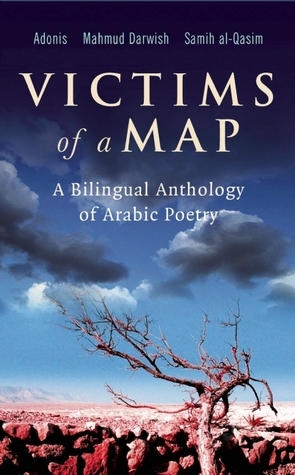What do you think?
Rate this book


168 pages, Paperback
First published January 1, 1990
"A Gentle Rain in a distant autumnTwo things that the above quote features that I think all 3 poets like is precise use of repetition and use of symbolism and to make a point. What Darwish was a very prominent left-wing poet whose political activism and literature has drawn recognition and criticism across the Arab-Israeli divide. His poetry was unique to me in its use of the senses and memory. I have gotten so use to poets aiming for my psyche that it was amazing to read a poet who so impacted my senses and could describe something and make me see, smell, and taste it. He is also very fond of using nostalgia and memory in his poems in-which he wants you to remember something that happened to him.
And the birds are blue, are blue,
And the earth is a feast.
Don't say I wish I was a cloud over an airport.
All I want
From my country which fell out of the window of a train
Is my mother's handkerchief
And reasons for a new death." - first stanza of "A Gentle Rain in a Distant Autumn."
"On the day you kill meSometimes, less is more. No poet so exemplifies the previous statement like Samih al-Qasim. Like Mahmud Darwish he is a Palestinian, but unlike Darwsh, he has lived most of his life inside Israel in the town of Hafia and rarely leaves Israel or the Palestinian territories. Both al-Qasim and Darwish were involved in political causes and ran afoul of the Israeli government, but when it comes to poetry things are very different. Where Darwish writes in very descriptive long-form, al-Qasim is sparse, minimal and to the point. His poems may be only two lines, but you will read them over and over because of his mastery of symbolic expression makes you keep wanting to pick up something you thought you missed. His poems are so open to interpretation that you don't know if he is being darkly-comedic or tragic (or both).
You'll find in my pocket
Travel tickets
To peace,
To the fields and the rain,
To people's conscience.
Don't waste the tickets." - "Travel Tickets"
"The street is a woman who saysMaybe the most famous Arab poet of the post-war 20th century, Adonis is definitely the "strongest" poet of the three featured in this book. I would guess that if a contemporary Arab poet is anthologized in "The West" it is him (or maybe Mahmud Darwish). His poetry, while sharing many traits with the two previous poets, is very intentionally styled after modernist poetry. Now I can start using names like T.S. Eliot, William Carlos Williams, Ezra Pound and etc., but he also has a connection to the older mystic poetry of Rumi and Kahil Gibran. His poetry reflects the wider Arab world (with an obvious bias towards Syria) and recognizes the presence of Christians in the Arab world (or at least in Syria/Lebanon). The centerpiece of this book is his poem "The Desert" which premiered in the first edition of this collection (which came out in 1984) and is a poetic "diary" of the Siege of Beirut which he was caught up in. If I had to recommend one poem from this book for a first time reader of Arabic poetry "The Desert" would be my choice hands down.
The Fatiha when she's grieved
Or makes the sign of the Cross.
Under her breast
The hunchbacked night
Fills his bag
With grey whinning dogs
And snuffed out stars." First stanza of "A Mirror for Beirut (1967)"